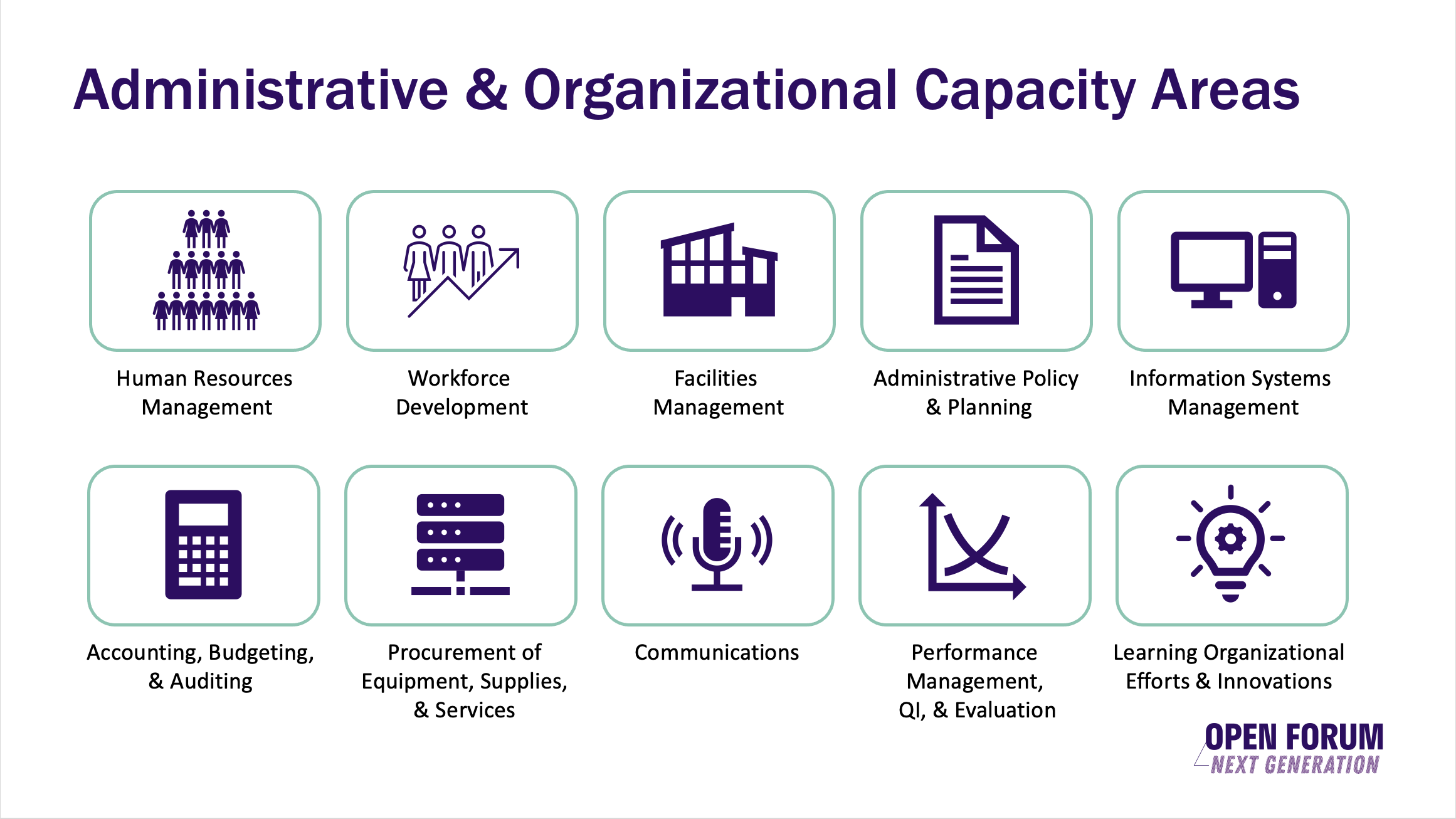Peer Assessment Program Assists Health Departments in Modernizing Agencies’ Infrastructure
- By: Meghan Wolfe
- Date
The Public Health Infrastructure Grant (PHIG) features foundational capabilities as one of its three core strategy areas. Health department staff funded by PHIG and otherwise are embarking on administrative and organizational improvements in the areas of hiring timeliness, organizational culture, communications, procurement and contracting improvements, and workforce development. These topic areas are fundamental functions of a public health department and are key elements to a strong public health infrastructure.
The Association of State and Territorial Officials (ASTHO) recently launched the Peer Assessment Program focused on assessing the administrative and organizational capacity of public health agencies. The program offers a voluntary, point-in-time assessment process to assist health departments with identifying opportunities for modernizing their agency’s infrastructure and operations to meet the needs of public health. The peer assessment process supports health departments in understanding administrative and organizational gaps, identifying innovative solutions to improve resource allocation and administrative readiness, and enhancing collaboration within and across program areas and teams, as well as with external partners.
The Peer Assessment Program process begins with selecting one to three capacity areas the health departments would like to focus their attention. Each area has 6-10 indicators that seek to collect both quantitative and qualitative data. For example, for the communications capacity area, below are two example indicators that are part of the assessment:
- What percent of the major communications activities described in the agency communications plan have been implemented? (qualitative)
- To what extent are social media communications a part of the health department’s ongoing communications? (qualitative)
The indicators for each capacity area allow health departments to braid data with context to understand the spectrum of strong performance areas to areas where gaps persist. This data is supplemented with site visit interviews with key health department staff and partners for the assessment.
The application process for a health department to participate includes a pre-application readiness tool and requires support from a health official and securing an executive-level sponsor. Once the pre-application is completed, health departments can submit the full application with supplemental documentation, including the strategic plan and a letter of support.
Once selected for the program, ASTHO provides an orientation, co-creates a program charter, and shares program materials. The subsequent weeks involve data and information collection related to the selected capacity areas for the peer review team, followed by planning meetings and site visit planning. The site visit itself takes place over several days and features interviews with staff and partners that culminate in a report of findings and recommendations. The estimated program length from start to finish is about five months. ASTHO will also offer some post-program technical assistance and coaching calls to support the implementation of report recommendations. Interested health departments can learn more and access the application materials here.
The Peer Assessment Program does not offer a certification or accreditation, but instead is considered a complementary process to the Public Health Accreditation Board’s (PHAB) process. While PHAB accreditation reviews performance against standards of what a health department SHOULD be doing in the context of the Ten Essential Public Health Services, the Peer Assessment Program reviews HOW the health department is managing its administrative functions and how those can be improved.
The volunteer peer reviewers are experienced in public health department administration or operations. They are trained by ASTHO staff and bring knowledge and expertise in evidence-based practices to their role. The peer reviewers build relationships with the health department staff throughout the assessment process and ultimately provide actionable recommendations for improvements. ASTHO is recruiting peer reviewers for the program’s Beta Test. You can learn more and apply to be a peer reviewer here.
The Peer Assessment Program is currently being pilot-tested and is seeking up to three health departments and several peer reviewers to apply and help refine the process. The ASTHO team is seeking input on the draft capacity indicators from health department staff and other public health experts. To build on the communications capacity example from above, at the 2023 Open Forum: Next Gen, ASTHO hosted a workshop and received feedback and ideas on additional communications indicators including: including emergency communications preparedness as an indicator, adding an indicator around measuring community trust building and cultural resonance, and increasing focus on the impact and outcomes of communications. ASTHO anticipates fully launching the revised program in Summer 2024.
About ASTHO’s STAR Center
The Peer Assessment Program is a product offered by ASTHO’s State and Territorial Administrative Readiness (STAR) Center which provides technical assistance on administrative and organizational capacity by:
- Connecting public health agencies to high quality resources, tools, and model practices that modernize and strengthen administrative and organizational capacity.
- Assessing current organizational capacity for opportunities to strengthen systems.
- Improving business processes and accelerating administrative processes for timely public health response.


 Subscribe To Our Communications
Subscribe To Our Communications